
MUCH vs MANY What Are The Differences? ESL Forums Learn english
'Many' is much* more common in affirmative sentences and does not have the same archaic tone. It is a little more formal than 'a lot of', but is common in normal speech. Peter. The LearnEnglish Team * note that 'much' here modifies the comparative adjective, and with this use it is common in affirmative sentences
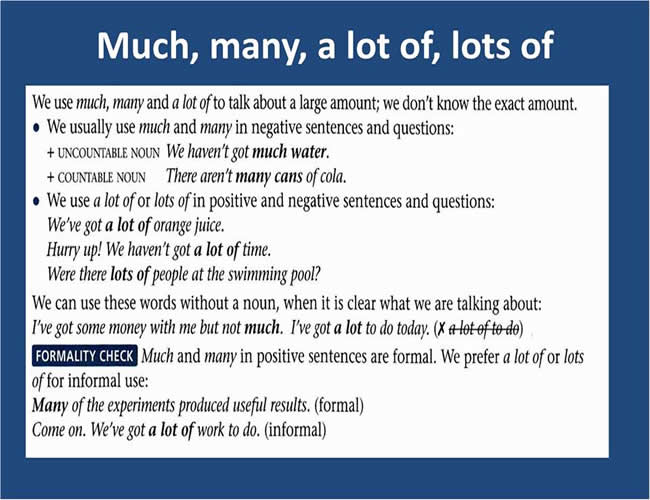
Uses of Much, Many, A lot of, Lots of English Learn Site
Much and Many are used to express that there is a large quantity or a large amount of something. Much is used with uncountable nouns Many is used with plural countable nouns See our video about countable and uncountable nouns if you are not sure what they are. Let's look at much and many in more detail. MUCH Much is used with uncountable nouns.

MUCH MANY A LOT OF English grammar, English classroom, Teaching
Much and many are normally used in negative sentences or questions. Much is used with non-count nouns and many is used with plural count nouns. There aren't that many Indian restaurants in my city. Did you spend much at the mall?
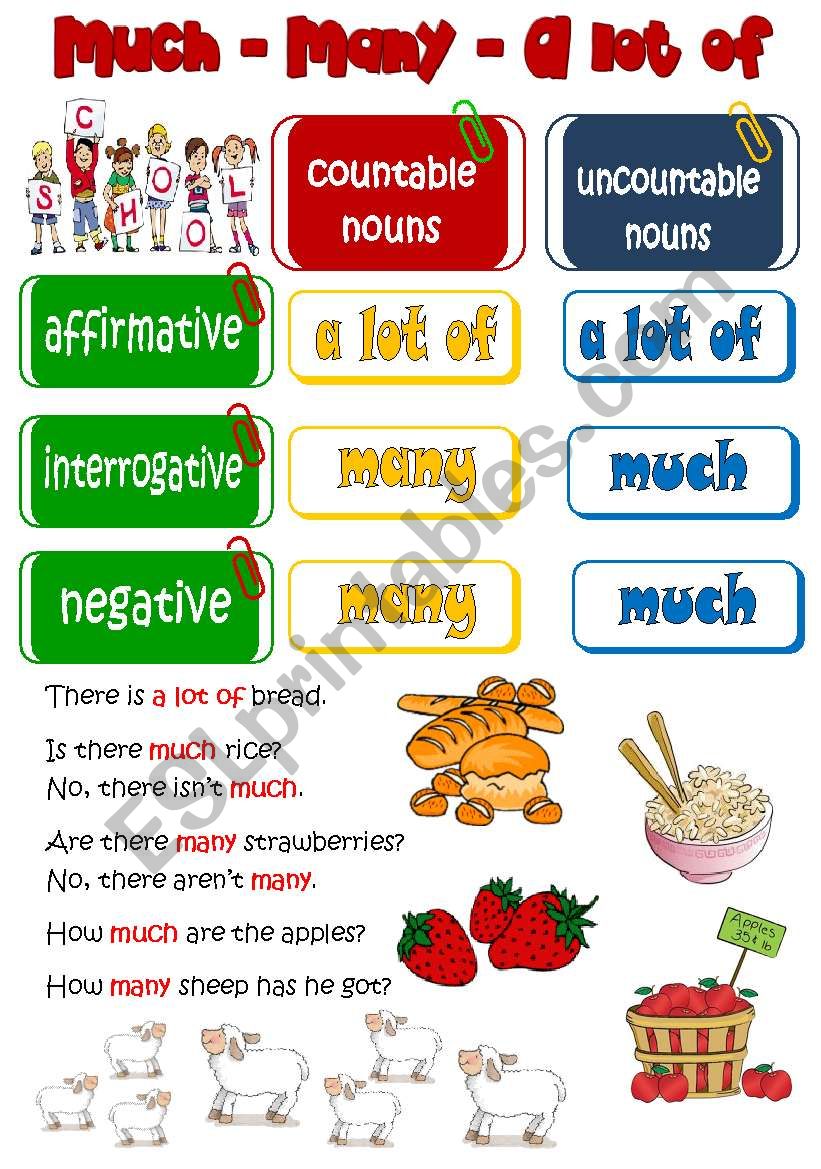
MUCH MANY A LOT OF *poster + exercises* (B&W + KEY included) ESL
The quantifiers much and many describe larger numbers or amounts and are usually used in interrogative statements and sentences with negative meaning. The essential difference is that ' much ' goes with uncountable nouns and ' many ' with countable nouns in the plural. Compare the occurrences of ' much ' and ' many ' in detail:
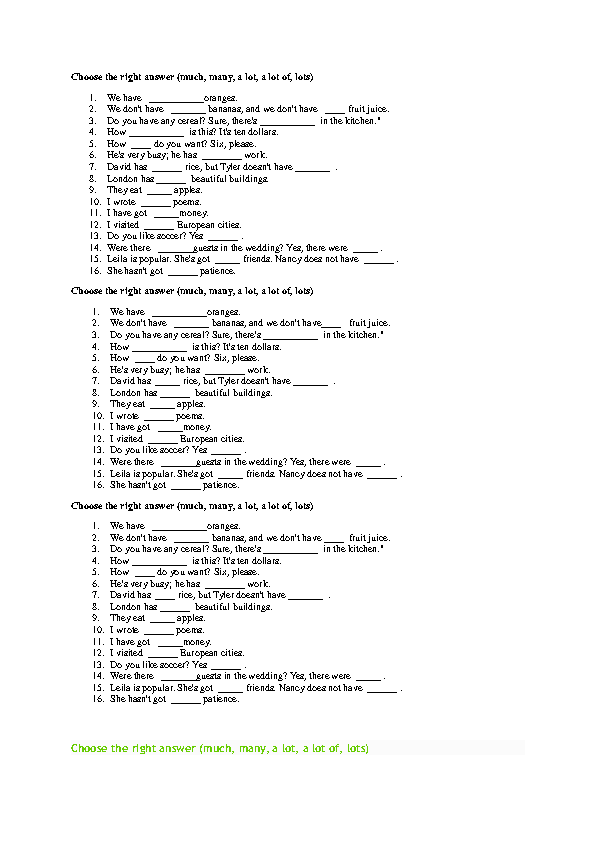
Much, Many, a Lot Of
For positive sentences to express a large quantity, we do NOT use "much" or "many". We prefer "a lot of" or "lots of". For example "There are a lot of oranges" and "there is a lot of milk. This video shows some of the different ways in which the adjectives "much" and "many" can be used when asking questions about amounts.
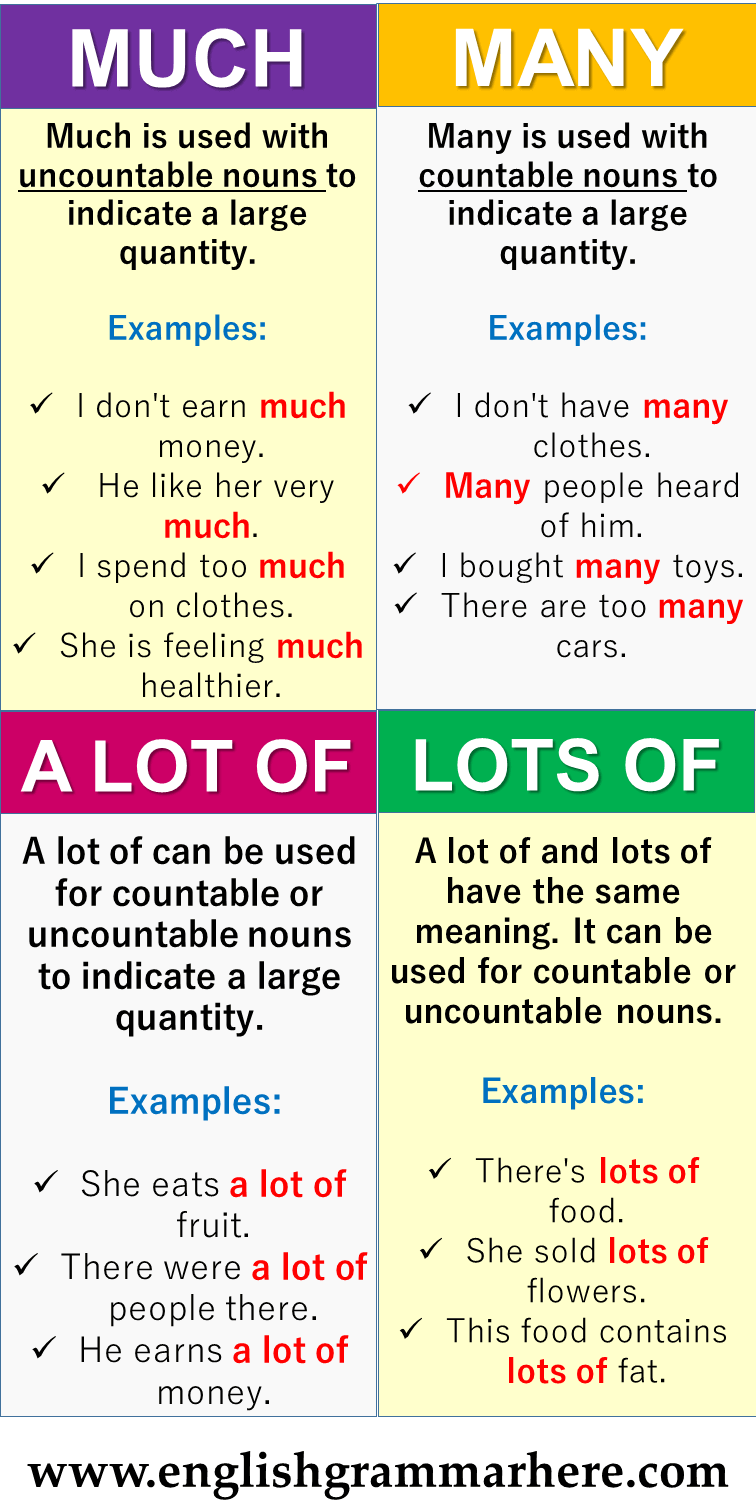
English Grammar Using Much, Many, A lot of, Lots of and Example
Much, many, a lot: "Much", "many", and "a lot of" indicate a large quantity of something, for example "I have a lot of friends " means I have a large quantity of friends. Much, many, and a lot are quantifiers. Study the examples below: In the interrogative forms we use: much with uncountable nouns. (money, bread, water.) Example:

Difference Between Much and Many
MANY We use many with countable nouns. We usually use it in question and negative forms. Are there many horses in the field? There aren't many tomatoes in the bowl. A LOT OF We use a lot of with countable and uncountable nouns. It is used in affirmative sentences. There are a lot of eggs in the fridge. There is a lot of milk in the pitcher.
MUCH vs. MANY vs. A LOT OF English Grammar Lesson video Dailymotion
Definition To a very great degree or extent Examples I feel a lot better many Definition a quantifier that can be used with count nouns and is often preceded by 'as' or 'too' or 'so' or 'that'; amounting to a large but indefinite number Examples He has many qualities. Other misspelled words Adopted vs. Adoptive Perspective vs. Prospective

MUCH vs. MANY vs. A LOT OF English Grammar Lesson YouTube
A lot of / lots of can also be used with both countable and uncountable nouns. Note that there is hardly any difference between a lot of and lots of. A lot of and lots of are mainly used in affirmative sentences. In questions and negatives we express the same idea using much and many. I have watched lots of English films.
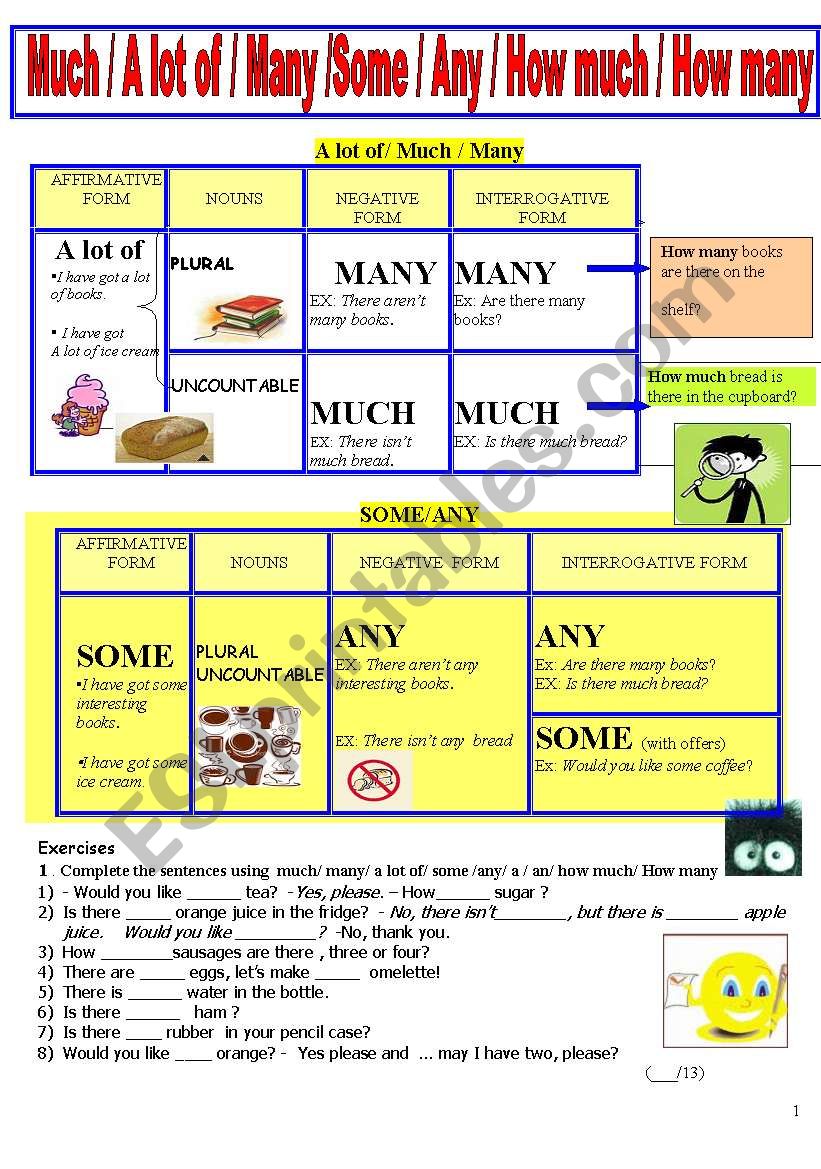
Much A lot of Many Some Any How much How many ESL worksheet
Much and Many Do Fit In Positive Statements if They Are After "So," "As," or "To". The only major exception is when we use much or many after the words "so," "as," or "too." In this case, it's perfectly natural to use much or many in an affirmative statement. Both "I have a lot of cats" and "I have so many cats" sound just as natural to native.

Much many. A lot of some any презентация онлайн
There are lots of people at the party. (even more informal) "Many" and "much" in affirmative (positive) sentences (like the one above) sound so formal you will almost never hear these in a normal conversation; you should only use them in writing and in very formal speech.

much, many, a lot of Quantifiers Określenia ilości ELLA
Much and many Do you want to practise using much and many in English? Help Much and many We can use much and many to talk about quantities. We can also use a lot of or lots of. There aren't many shops in my town. Do you get much homework? I've got a lot of games. How to use them We usually use a lot of or lots of in positive sentences.

Much, Many, A lot of, Some, Any, Few, Little... en inglés
Much, many, and a lot are quantifiers that all mean 'a large amount of'. The main difference between these words is that we can use much with uncountable nouns, many with plural countable nouns, and a lot with both types of nouns. Learn about much, many and a lot of with Lingolia, then practise using them in the free interactive exercise. Example
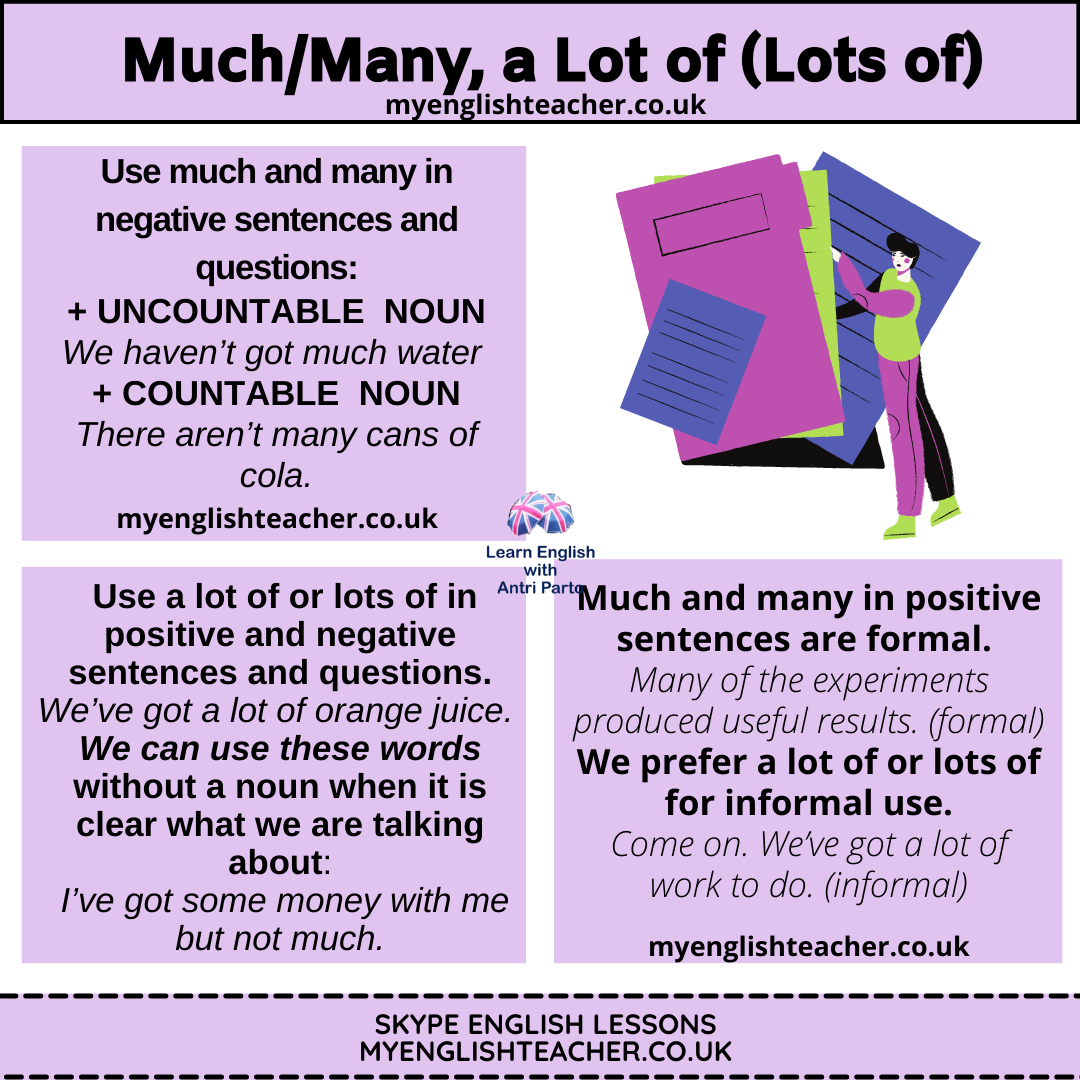
Much, many, a lot of (lots of) My Lingua Academy
much/many a2 Reference Quantifiers: much/many/a lot of I have a lot of books in my bag. They drink lots of water. There aren't many tomatoes. I don't eat much sugar. 'How much rice do you eat?' 'Quite a lot.' 'How many potatoes are there?' 'Not many.' 'How much money do you have?' 'None.' I don't have any money.

Much many. A lot of some any презентация онлайн
So, how much water should you aim to drink in a day? The Institute of Medicine of the National Academies recommends drinking 2.7 liters (or 91 ounces or 11 cups) for adult women a day, and 3.7.
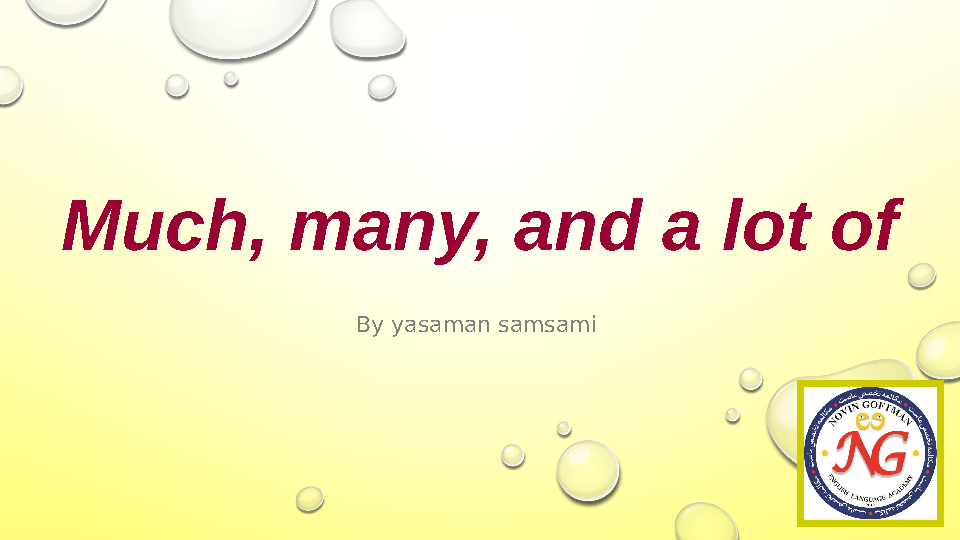
Much, Many, and a Lot of PPT
The words MUCH, MANY, and A LOT (LOTS) show there is a large amount of something. Much is used with uncountable nouns. (smoke, water, money, etc.) Many is used with plural countable nouns. (cars, sunglasses, people, etc.) A lot (Lots) can be used with both countable and uncountable nouns. MUCHMANYA LOT/LOTSUsed with nouns we cannot…